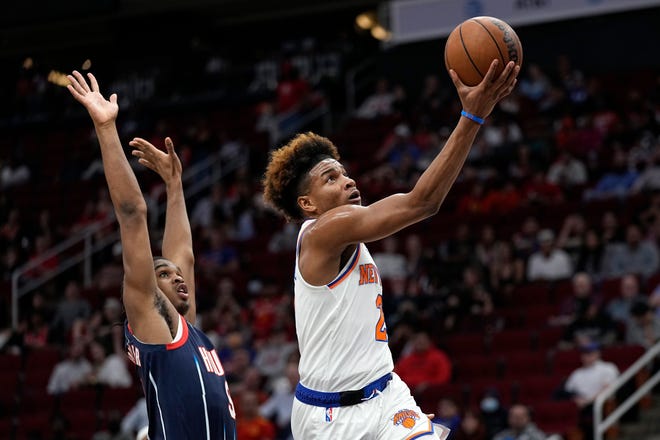
A number of speakers at the Sport Science Forum this weekend will present research into fan behavior.
I will present you.
You are pioneers.
Together, we practically apply research and coaching to your real world, to help ease your stress and enhance your fandom, your way. We share our discoveries on social media and in this space. It an honor to Zoom the forum at Western Kentucky University about our ground-breaking ride.
Reds spring trainingWhy the Cincinnati Reds are emphasizing defense at spring training
UC basketballCincinnati outlasts Temple in overtime for key AAC victory
Bengals Joe BurrowJoey Books? A Joe Burrow biography is coming this April
Fandom comes with no guidebook. Research looks at how your families, peers, schools or communities indoctrinate you. Then what? You adopt and adapt. What is appropriate? Says whom?
“In the book of life,” Charlie Brown told us, “the answers aren’t in the back.”
So what do you do? You can react impulsively, without a filter or forethought, like a team showing up with no game plan, easily provoked or rattled. Or you can make conscious decisions about how you want to show up, so you can feed your passion without losing yourself.

Researchers explain what can happen to us. They study our triggers, our hormones, our emotions, our actions. They try to quantify and understand the reward and risk when we identify more and more with our team.
FC CincinnatiHere's how FC Cincinnati plans to make TQL Stadium a 'fortress' in 2023
Xavier basketballThe pressure always mounts in February. Xavier has to be able to handle it.
The connection with our team and our village of its fans can inspire us. But we can lose perspective when winning and losing become too personal, a potential byproduct of what researchers label “allegiant” fandom.
Studies provide important glimpses into us as a group, to promote further research and discussion before drawing too many conclusions. What do you want to do with that? You are not a group. You are you. You want what you want out of fandom. Which is ... what?
More wins? Sorry, that is not within your control. What is?
Do you want to stop rage-posting on social media? Do you want to understand the bias you see against your team? Do you want to enjoy the games more? Do you want more time for fandom or balance in your life? Do you want to stop measuring your fandom by your degree of suffering?
Once you know the answers, you can game-plan how to break through what is stopping you, your way, one step at a time.
“Just when you think you have all the answers,” Rowdy Roddy Piper told us, “I change the question.”
Who was prepared to see Damar Hamlin’s heart stop?
The NFL provided teams with mental-health resources, but only increased your anxiety with untimely and confusing information. You saw a traumatic event. This hit home, against your team, in your backyard, eerily close to where Tua Tagovailoa had been knocked out earlier in the season.
Enough.
It is time for leagues, teams, society and us to think about our mental and emotional health, too – to read the research, ask for more and listen to us.
Fandom is generally wonderful, but even the everyday stress can be hard to navigate at times, especially amid so much change. A few new bobbleheads feel like a pat on the head instead of an effort to understand us. We want more transparency. We want more of a partnership, supporting each other, keeping each other healthy. We still will hate the losses, but maybe we can handle them better.
Otherwise, we dog-paddle on our own.
“Sports do not build character,” Heywood Broun told us. “They reveal it.”
We could say the same about fandom, except sports have rules. Fandom is your rules. Nobody taught us to lead with our character, but it can be the most powerful guide to enhancing your fandom. You can let loose without letting go of who you are, if you follow your values and game-plan. Most of us are reasonably sane, not prone to drunken brawls or hooliganism at the games, but we aren’t sure where to draw the line.
Whose line is it anyway?
“I hate sports the way people who like sports hate common sense,” H.L. Mencken told us.
Sometimes a little unreasonable benefits us. Faith is not always reasonable. Faith was believing the Bengals would win a playoff game again. Common sense never foresaw the 2021 Bengals in the Super Bowl.
Sometimes we demand the unreasonable. Every team is trying to reign, not just ours. Sometimes we choose conspiracy theories over common sense. Every close call is not a sign of league bias. We are too easily disregarded as the background noise of sports, typical fan lunacy. Yeah, we can get a bit goofy, because we want what we want so badly.
“People come home from these games, ‘We won! We won!’ No, they won – you watched,” Jerry Seinfeld told us.
Funny. And true. In a literal sense. The team can be part of your identity, but you are not the team. Not so funny when you are so enmeshed that you see the team losing as you losing – or worse, that you are a loser.
Researchers see patterns in our defense mechanisms, do studies about how our expectations affect our perceptions. Here, we relate their work to you, most recently surrounding the Bengals season. You are different but not alone, what you feel is real, and you have choices, whether the teams or leagues help you. You can define or design your fandom, your way.
You can make sure you are having fun, too. You even can look for the humor, just as a certain very famous and very funny Mets fan does.
“Loyalty to any one sports team is pretty hard to justify,” Seinfeld told us. “Because the players are always changing, the team can move to another city. You're actually rooting for the clothes when you get right down to it. I mean, you are standing and cheering and yelling for your clothes to beat the clothes from another city. Fans will be so in love with a player, but if he goes to another team, they boo him. This is the same human being in a different shirt; they hate him now. Boo! Different shirt! Boo!”
Source link









